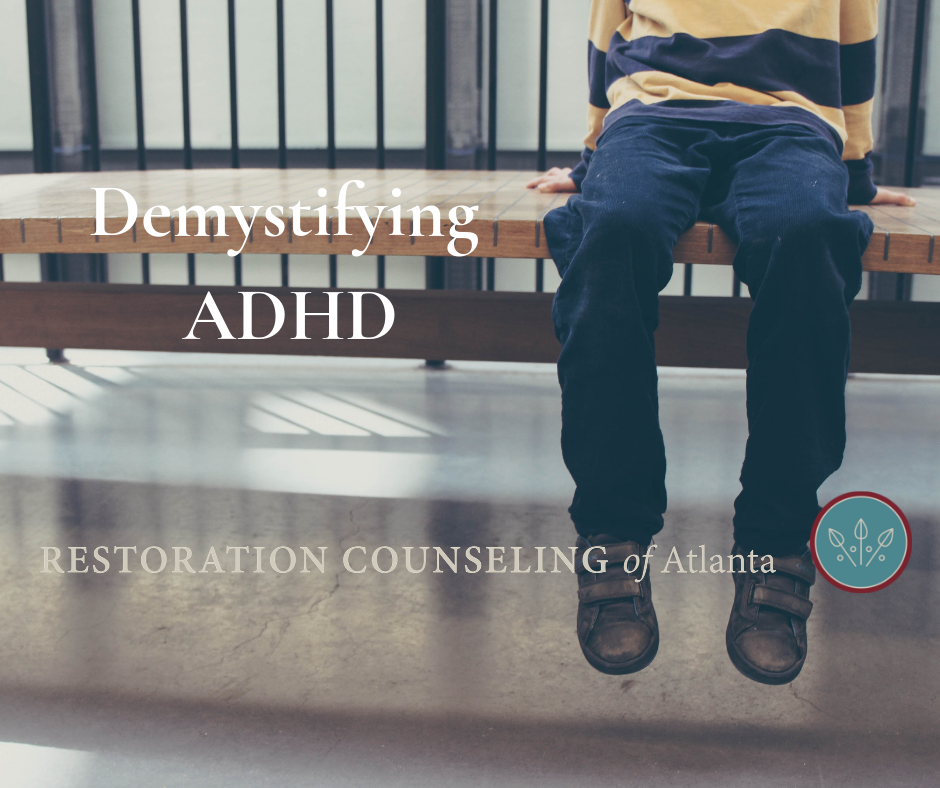Are you wondering if your child or teenager might have Attention Deficit Hyperactivity Disorder (ADHD)? This article will provide you with more information about the three different types of ADHD, questions to ask your child to see if he or she needs further assessment, how to explain ADHD to a child, and strategies that help children cope with ADHD.
ADHD has a lot of misconceptions, and one of those is the belief that there are only two types when there are actually three. John F. Taylor thoroughly explains the three types in his book: The Survival Guide to ADHD for Kids.
Types of ADHD:
The first type of ADHD is the hyperactive-impulsive type. The symptoms for this type are hyperactivity and impulsivity. A child who is hyperactive will have trouble staying quiet and sitting still. They often need to move around a lot. A hyperactive child will often talk when he or she is not supposed to, such as blurting out an answer in class before raising his or her hand. He or she might also speak and make decisions before thinking about the possible consequences of these actions.
The second type of Attention Deficit Hyperactivity Disorder is the inattentive type. People sometimes call this type ADD and leave out the H because hyperactivity is not a problem for a child with this form of the disorder. A child with the inattentive type of ADHD has trouble focusing and is indecisive. Being inattentive means the child may be easily bothered by noise, and it may take him longer to finish homework because he is easily distracted. He also will have difficulty concentrating.
The third type of ADHD is a hyperactive and inattentive combined type. These kids are hyperactive and inattentive, so they have a mix of both sets of traits. Children with this type may have trouble focusing, exhibit scattered behavior, and have trouble controlling her actions and words.
If your child is exhibiting behaviors consistent with the descriptions of ADHD, here are some questions that might be helpful for your child to ask himself to assess the possibility of one of these types of disorders. These questions are listed in the book Delivered from Distraction by Edward Hallowell and John Ratey, which is a great resource for ADHD.
Questions to Ask Your Child To Assess If He Or She Has ADHD:
- Is it hard for me to focus in school?
- Am I disorganized and do I often lose assignments?
- When I am given a task that requires a lot of thought, how often do I put off getting started?
- How often do I feel overly active or driven by a motor?
- Do I have trouble finalizing the details of a project?
- Am I having trouble with organization and keeping things in order?
- Do I often fidget or have trouble sitting still?
- Do I have trouble remembering appointments?
If your child answers yes to most of these questions, then it would be helpful to talk to a counselor about getting helpful strategies to manage the possible ADHD or to get an official diagnosis from a psychologist.
Explaining an ADHD Diagnosis to Your Child
How do you explain to your child that he or she has ADHD? The process of explaining might be very frustrating and challenging. Here are a few facts that might ease your child’s mind about ADHD, help explain what it means, and normalize the diagnosis for them.
- Make sure that your child feels special and knows that with the right strategies, they can use their ADHD to work to their benefit. Stress that ADHD has nothing to do with their intelligence, and it is not a flaw.
- There are many intelligent and successful people who have ADHD such as Albert Einstein, Michael Phelps, Will Smith, Michael Jordan, and many others! These people have learned how to use their ADHD to benefit them to be more creative and athletic, and your child can also learn to do that as well.
- Medicine can help a child’s brain to focus better, in a process that is similar to wearing glasses to help with reading. Having ADHD does not mean that someone is stupid, lazy, or crazy. It means that there are unique differences in the way an ADHD brain works.
- Help normalize ADHD for your child so she knows she is not alone. Educate your child about ADHD and focus on the strengths of the disorder, rather than the potential weaknesses. For example, people with ADHD are often very flexible and spontaneous, think outside the box, are highly social and intuitive, and have a great sense of humor.
Some strategies to help manage ADHD include the following:
- Eating a balanced diet.
- Taking fish oil.
- Taking a regulated medication.
- Regular exercise.
- Having certain places to put everything to help your child stay organized, therefore creating systems to help manage daily activities.
- Have someone who does not have ADHD help your child think of another way to organize something.
- Encourage your child to participate in what he or she is good at and minimize the time he or she spends doing things they struggle with.
- Help your child get creative.
ADHD can seem like a scary label for a child to be diagnosed with. A lot of kids with ADHD feel the need to be perfect. They feel like they can’t measure up and are too different than their peers. However, knowledge around what ADHD means and an actual understanding of it can help a child to feel empowered and to even embrace his or her ADHD. Encourage your child to utilize their ADHD for their benefit.
 Written by: Mead Reed, MA, LPC, LAMFT
Written by: Mead Reed, MA, LPC, LAMFT
mead@restorationcounselingatl.com, ext. 115
Roswell and Woodstock Locations
Mead counsels children, adolescents, adults, and families who are struggling with anxiety, depression, communication difficulties, grief, as well as other life issues. She is a certified PREPARE/ENRICH facilitator and also works with premarital couples. She is trained in sand tray therapy which is beneficial for working with children and individuals. Mead’s sincere desire to help her clients experience freedom from fear. She is passionate about helping her clients to get out of the rut that they have been experiencing and into new, healthy, relationship patterns. She will provide a safe environment for healing.

